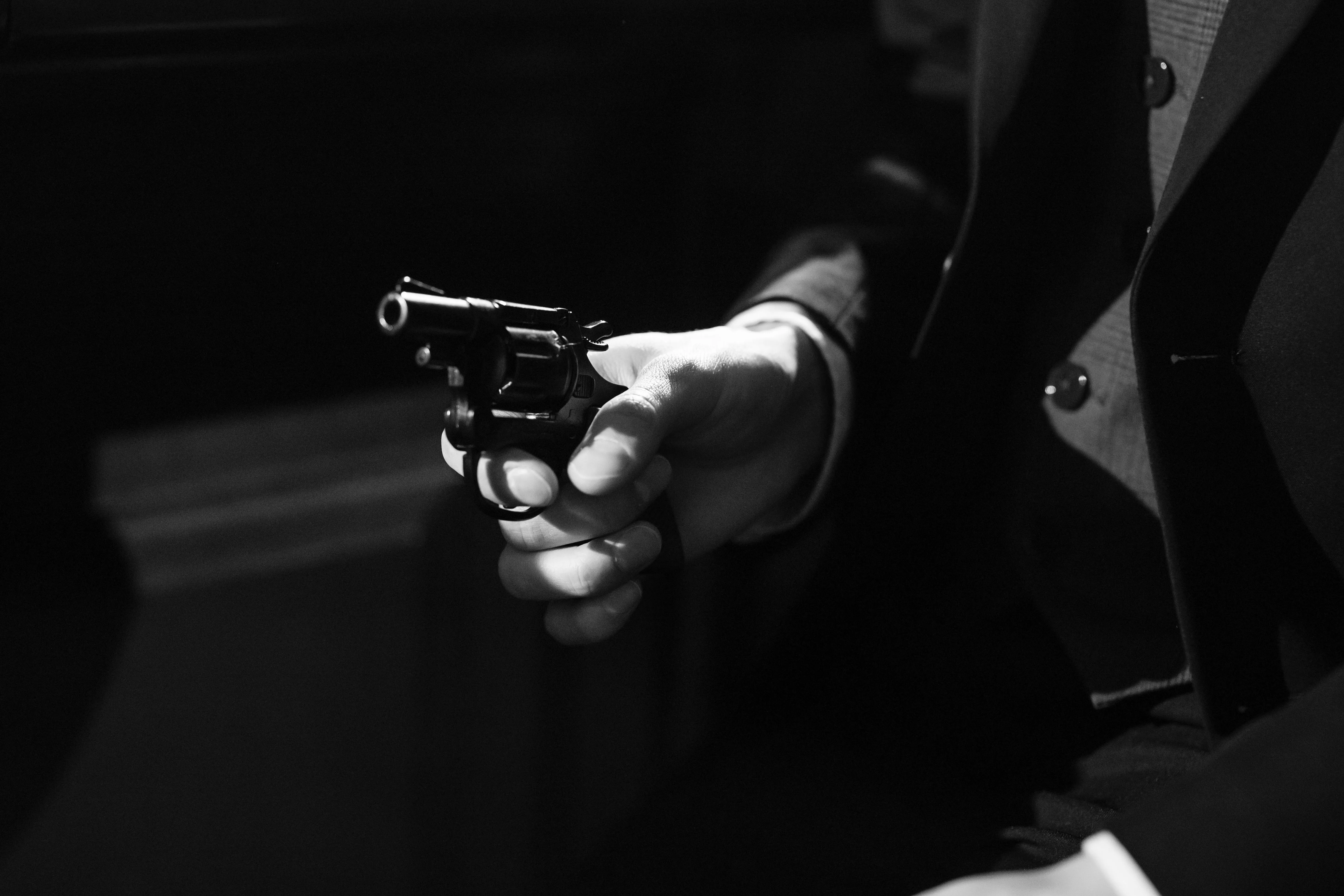The penitentiary system, as the backbone of justice in any society, plays a crucial role. It's not only an institution responsible for retribution for criminal acts, but also aims to safeguard public safety and promote the rehabilitation and reintegration of offenders. In this context, prison surveillance emerges as a comprehensive set of processes, policies, and regulations that ensure not only security and order within prison facilities but also protect inmates' basic rights and fulfill their fundamental human needs.
The Royal Decree 190/1996, of February 9th, which approves the Penitentiary Regulations, plays a pivotal role in defining the legal basis for prison surveillance. It encompasses various aspects essential for humanizing penitentiary systems, effectively rehabilitating individuals, and ultimately achieving their successful reintegration into society. In this context, Chapter VI of the Royal Decree, which deals with temporary release permits, and Chapter VII, addressing information, complaints, and inmates' resources, hold particular significance.
In our penitentiary system, sentences are executed in different degrees based on individual circumstances. The first level, the closed regime, is the strictest; the second, the ordinary regime; and the third, the open regime. Prior to reintegrating into society, parole is granted. Individuals in preventive detention are initially classified under the ordinary regime by default.
The Classification Board is responsible for inmates' classification, proposing an initial classification. However, the final decision rests with the General Secretariat of Penitentiary Institutions, which can be subject to appeal.
Temporary Release Permits are a vital aspect of prison surveillance, emphasizing the importance of recognizing inmates' humanity and their emotional and relational needs. In many penitentiary systems, such permits are granted in various circumstances considered humanitarian and necessary for the rehabilitation process. One context in which these permits are granted is during significant events outside the prison, such as the loss of a loved one, a serious family illness, or the birth of an inmate's child. In such situations, a permit is granted to allow the inmate to face these events with dignity and provide support to their loved ones in times of extreme need.
In addition to permits granted for exceptional circumstances, the Royal Decree also contemplates short-term release permits for inmates in the second and third degrees. These permits are explicitly granted to gradually prepare inmates for their eventual reintegration into society. The underlying notion is that the transition from a prison environment to complete freedom can be overwhelming and challenging. Temporary release permits enable inmates to adapt to life outside prison, strengthen their social skills, and rebuild relationships with family and friends. These permits are subject to comprehensive assessment by a technical team and adhere to strict safety protocols to minimize risks associated with these temporary releases.
Chapter VII of the Royal Decree 190/1996, of February 9th, which approves the Penitentiary Regulations, is a fundamental pillar in ensuring inmates' rights are respected and protected during their time in prison. This section pertains to available information for inmates, as well as mechanisms for filing complaints and accessing resources in case of rights violations. The existence of this legal provision is essential to maintaining transparency in the penitentiary system, promoting equity and accountability, and ensuring that inmates' voices are heard and adequately addressed.
According to the Royal Decree, all inmates have the fundamental right to file complaints and petitions regarding any aspect of their treatment or conditions in prison. These complaints can be expressed verbally or in writing, and the penitentiary administration is legally obligated to record and provide written responses. A crucial point to highlight is that the law also stipulates that inmates' communications cannot be subject to censorship, ensuring their right to express themselves freely without fear of reprisals or unjust limitations.
Furthermore, Chapter VII introduces the figure of the Prison Surveillance Judge, to whom inmates can directly appeal in specific cases. The existence of this instance further strengthens penitentiary system supervision and guarantees that inmates have an additional and effective means to raise issues and seek solutions when they feel their concerns are not being adequately addressed by the penitentiary administration. The possibility of appealing to the Prison Surveillance Judge contributes to maintaining a more equitable and fair system where inmates' voices and rights are valued and protected at all times.
Penitentiary benefits and inmate classification are essential pillars that encourage self-improvement and responsibility in the rehabilitation process. Designed to incentivize good behavior and active participation in rehabilitation and reintegration programs, these benefits may include reduced sentence duration or effective imprisonment time, granted based on inmates' positive evolution and progress during their time in prison.
It is crucial to emphasize that penitentiary benefits are not granted automatically or arbitrarily. The Royal Decree establishes clear criteria for their granting, and inmates' behavior, attitude, and participation in rehabilitation programs are essential factors in determining their eligibility for these benefits. This provision fosters a culture of self-improvement and reform, incentivizing inmates to take responsibility for their own rehabilitation and reintegration process into society.
Inmate classification into different degrees is another fundamental aspect contemplated in the Royal Decree, which has a direct impact on surveillance and treatment within the penitentiary system. The law defines several inmate degrees, such as the first degree (which implies incompatibility with work) and the second degree (which allows work within the prison). These degrees not only influence inmates' activities and privileges but are also an integral part of their continuous progress and behavior assessment.
Inmate classification is subject to periodic reviews considering factors such as behavior, participation in rehabilitation programs, and general evolution. This ongoing evaluation ensures that inmates receive the most suitable level of supervision and treatment for their individual needs and circumstances. Moreover, this classification also affects the granting of temporary release permits and penitentiary benefits, as an inmate's positive progress can influence their eligibility for these opportunities.
In conclusion, penitentiary surveillance is about more than maintaining prison security and order; it involves a set of policies and regulations aimed at ensuring inmates' dignity and rights, promoting their effective rehabilitation, and gradually preparing them for successful reintegration into society. Temporary release permits acknowledge inmates' humanity and emotional needs by allowing them to face exceptional situations outside prison and adapt gradually to life outside.
The chapter on information, complaints, and resources ensures transparency and equity in the system by enabling inmates to voice their concerns and receive adequate responses. This not only promotes the penitentiary administration's accountability but also empowers inmates by providing effective avenues to seek solutions to specific problems. Furthermore, the existence of the Prison Surveillance Judge further reinforces this dimension of supervision and accountability.
Penitentiary benefits and inmate classification are essential pillars fostering self-improvement and responsibility in the rehabilitation process. By incentivizing good behavior and participation in reintegration programs, the law creates an environment where inmates are motivated to take concrete steps toward their own growth and positive change. Inmate classification ensures each individual receives the appropriate level of supervision and treatment, essential to addressing their unique needs and supporting their rehabilitation process.
Together, these components underscore the importance of a balanced approach to penitentiary surveillance, effectively combining justice and rehabilitation. The Royal Decree, as the legal framework governing these matters, plays a crucial role in creating a penitentiary system that not only punishes but also aims to transform lives and build a path toward successful reintegration into society. By ensuring inmates' rights are respected and granting access to improvement opportunities, penitentiary surveillance becomes a fundamental tool in constructing a fairer, safer, and more compassionate society as a whole.
Our law firm is committed to being your ally throughout the sentencing process, providing you with the knowledge and necessary guidance to understand and uphold your rights. We specialize in the penitentiary system, the Royal Decree 190/1996, of February 9th, which approves the Penitentiary Regulations, and the Organic Law 1/1979, of September 26th, General Penitentiary Law, and we are here to help you access the legal permits and benefits to which you are entitled. With our team by your side, you can face your situation with confidence, knowing that we are tirelessly working to protect your interests and support you on your path toward successful rehabilitation and reintegration. Your well-being and rights are our priority.

